In today's digital age, ensuring data security is more important than ever, especially when collaborating with suppliers. A solid supplier data security policy not only protects sensitive information but also fosters trust in your business relationships. By establishing clear guidelines and expectations, you can create a safer environment for both your organization and your partners. Curious to learn more about how to effectively implement a robust data security policy for your suppliers?
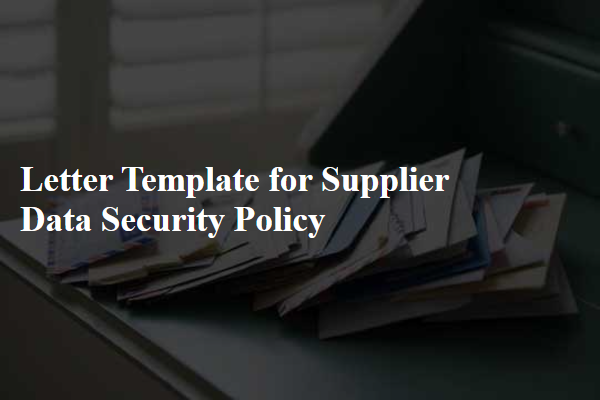
Introduction and Policy Purpose
In today's interconnected digital landscape, data security has emerged as a paramount concern for organizations, especially concerning supplier relationships. This document outlines the supplier data security policy aimed at safeguarding sensitive information shared between the organization and its suppliers. The policy establishes a framework to ensure that suppliers adhere to rigorous security standards, thus mitigating potential risks associated with data breaches, compliance violations, and reputational damage. Effective data protection measures not only comply with regulations such as GDPR (General Data Protection Regulation) and CCPA (California Consumer Privacy Act) but also foster trust between the company and its suppliers. The overarching goal is to promote a secure operational environment where all parties can thrive while minimizing potential threats to data integrity and confidentiality.
Data Protection and Encryption Standards
Effective data protection and encryption standards are crucial for safeguarding sensitive information within supply chains. Compliance with regulations such as the General Data Protection Regulation (GDPR), effective from May 2018, mandates companies to implement stringent security measures. AES (Advanced Encryption Standard) with a 256-bit key length is the industry benchmark for encrypting data both at rest and in transit, ensuring confidentiality. Furthermore, regular security audits, such as those conducted annually by third-party firms, help identify vulnerabilities and enhance overall cybersecurity posture. Supply partners must also adopt protocols such as multi-factor authentication (MFA), which significantly reduces the risk of unauthorized access, ensuring only verified personnel have direct access to sensitive data.
Access Control and Authentication Measures
Access control and authentication measures are critical components of a robust data security policy, especially in organizations that handle sensitive information. Access control refers to the processes that manage who can view or use resources in a computing environment, emphasizing the principle of least privilege, which restricts users' access rights to the bare minimum. Strong authentication measures, such as multi-factor authentication (MFA) and biometric verification, are essential in ensuring that only authorized personnel can access protected data. Effective access management systems must also include regular audits (conducted quarterly) to review access rights and ensure compliance with organizational policies. Furthermore, implementing strong password policies, requiring complex passwords to be changed at regular intervals, enhances security. Additionally, employee training on recognizing phishing attempts and social engineering tactics is necessary to mitigate risks associated with unauthorized access. Having an incident response plan in place helps organizations quickly address and remediate any security breaches related to access control failures.
Monitoring and Incident Response Procedures
A robust monitoring system is essential for ensuring data security in organizations. It involves continuous surveillance of network activities, user behaviors, and endpoint devices to detect any unauthorized access or anomalies. An integral component is the use of Security Information and Event Management (SIEM) tools, which collect logs from various sources, such as servers, firewalls, and intrusion detection systems, to analyze data in real time. Incident response procedures outline the systematic process following a security breach, including identification, containment, eradication, and recovery phases. Effective incident response plans often incorporate frameworks like NIST SP 800-61, providing detailed guidelines for addressing cybersecurity incidents. Regular training sessions for employees on recognizing suspicious activities can significantly enhance awareness and preparedness. Furthermore, organizations should establish communication protocols with stakeholders, including affected users and law enforcement, to ensure transparency and swift resolution in the event of a security incident.
Regulatory Compliance and Audit Requirements
Regulatory compliance in supplier data security is critical for maintaining the integrity and confidentiality of sensitive information. Various regulations such as the General Data Protection Regulation (GDPR) in the European Union and the Health Insurance Portability and Accountability Act (HIPAA) in the United States mandate that organizations implement robust data protection measures. Regular audits, which can occur semi-annually or annually, ensure adherence to these regulations and assess the effectiveness of security controls. Supplier assessments, including risk analysis and vulnerability testing, are essential practices that help identify potential weakness in data handling and storage processes. Documentation of compliance efforts, including policies, training records, and incident response plans, is crucial for demonstrating accountability and transparency during audits, ensuring that suppliers meet the expectations set forth by regulatory bodies.

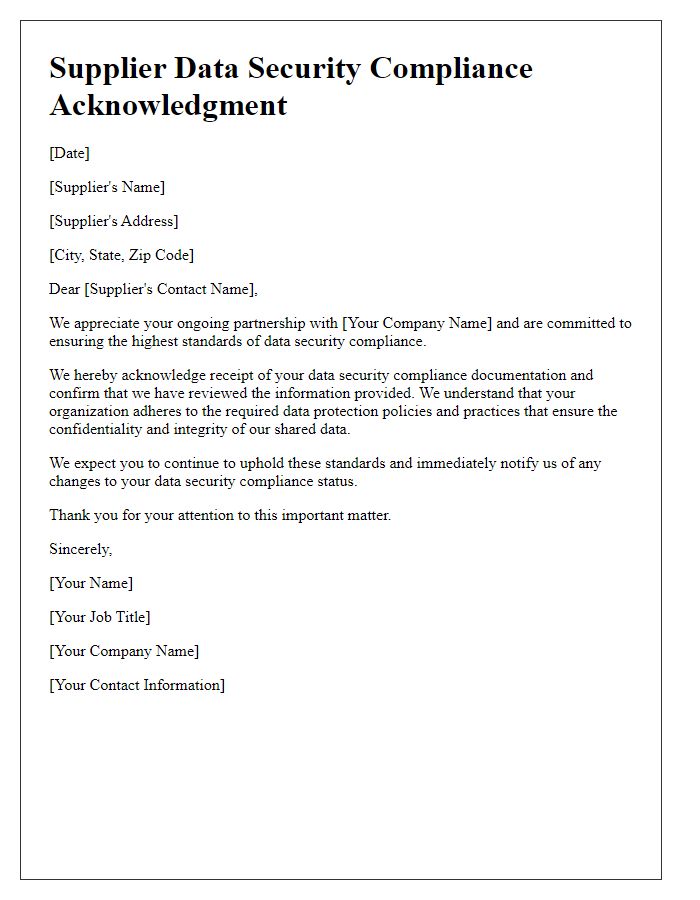
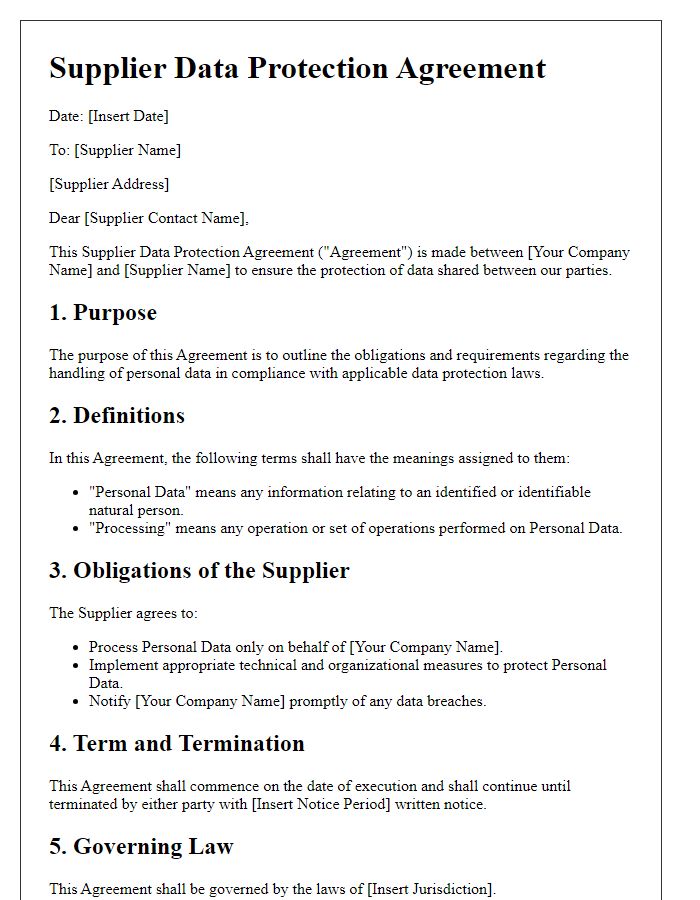
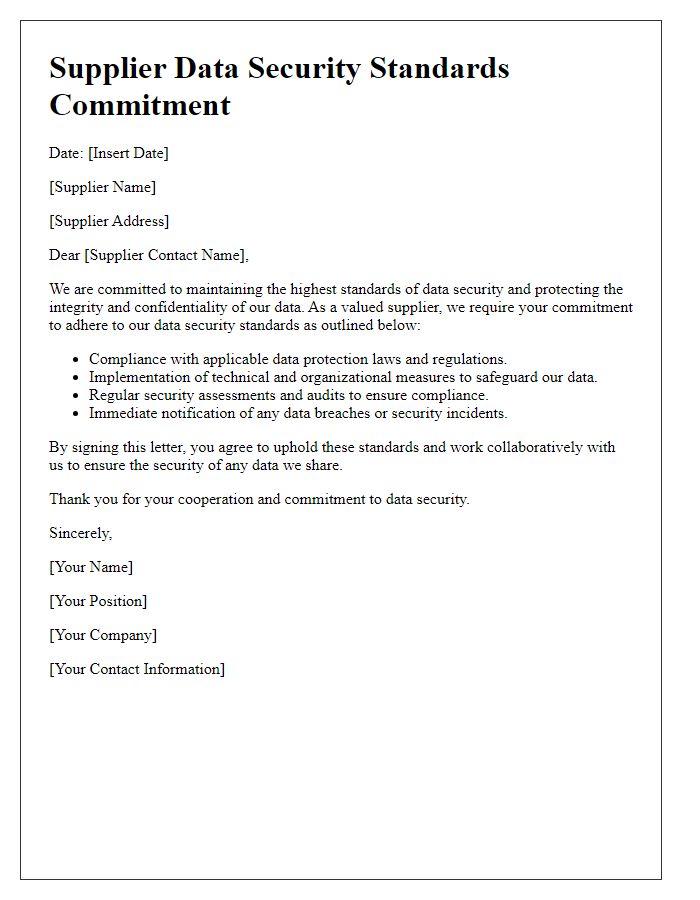
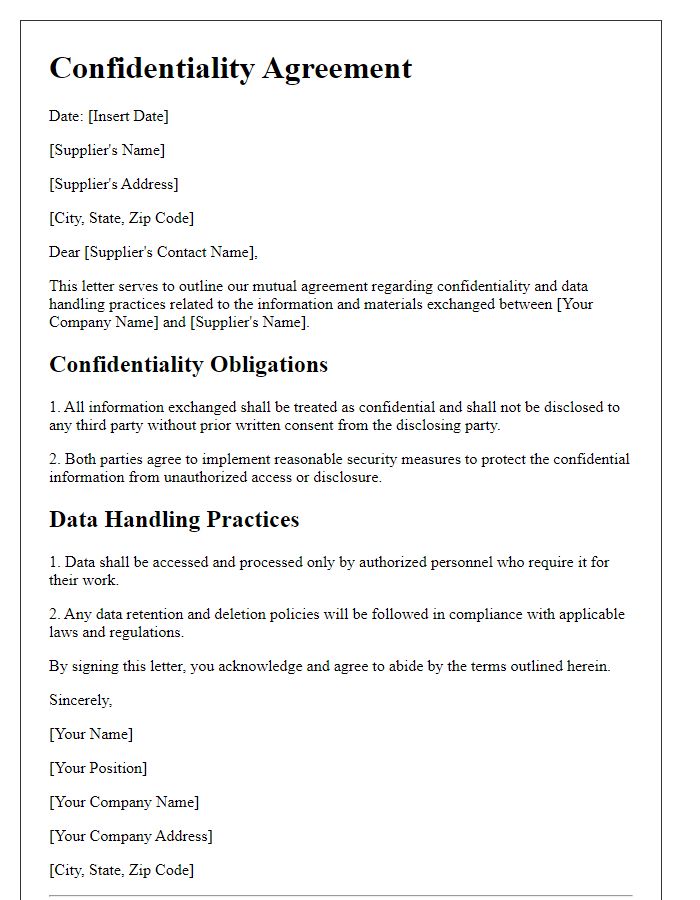
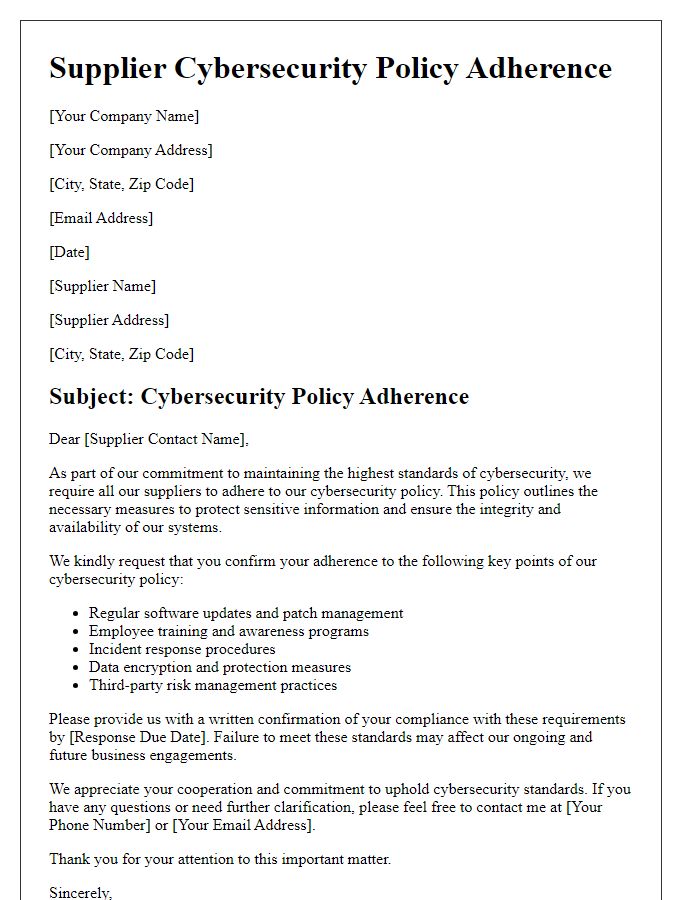
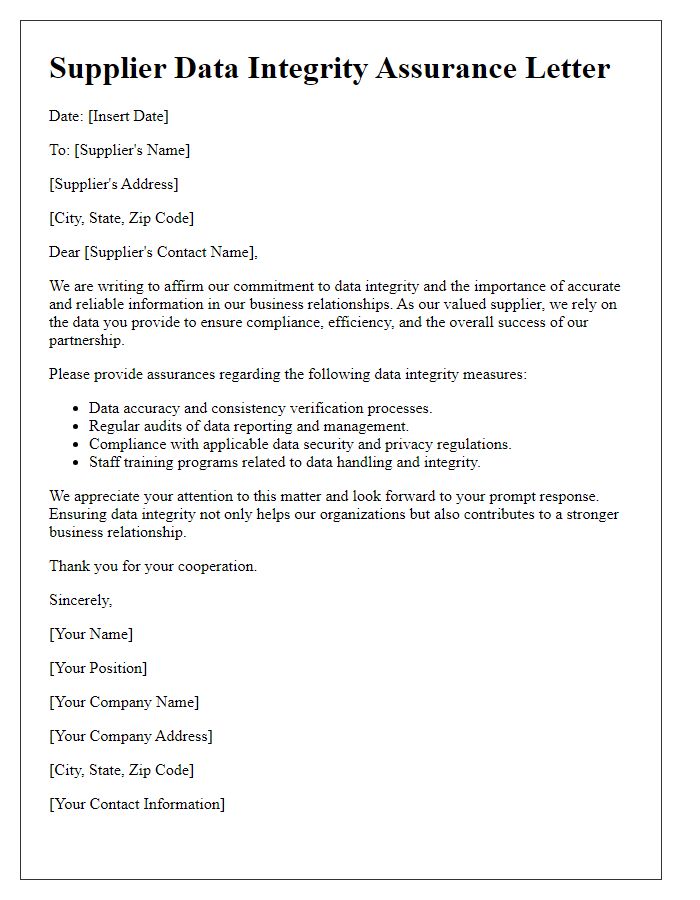
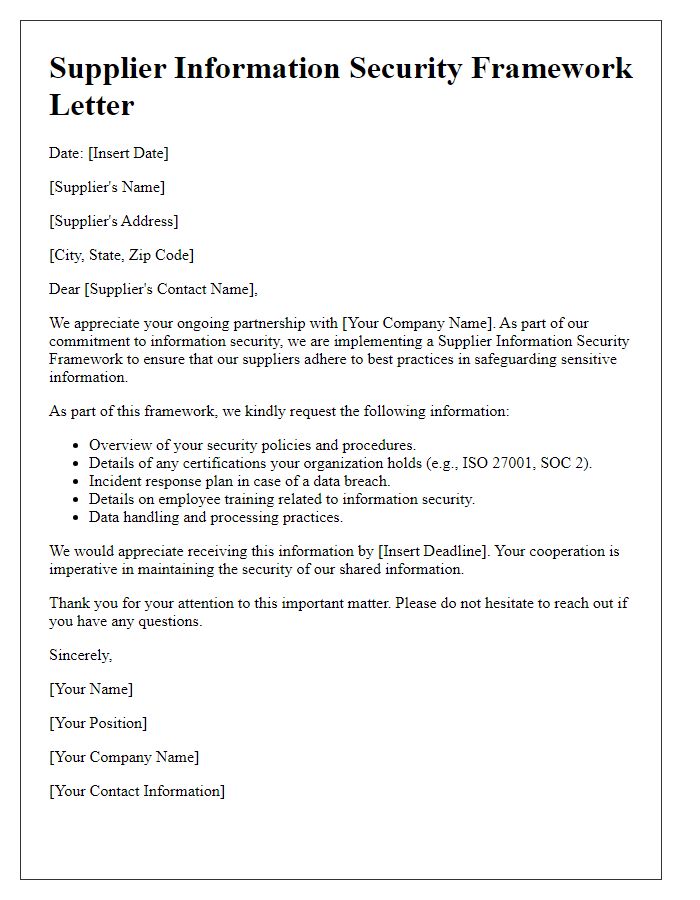
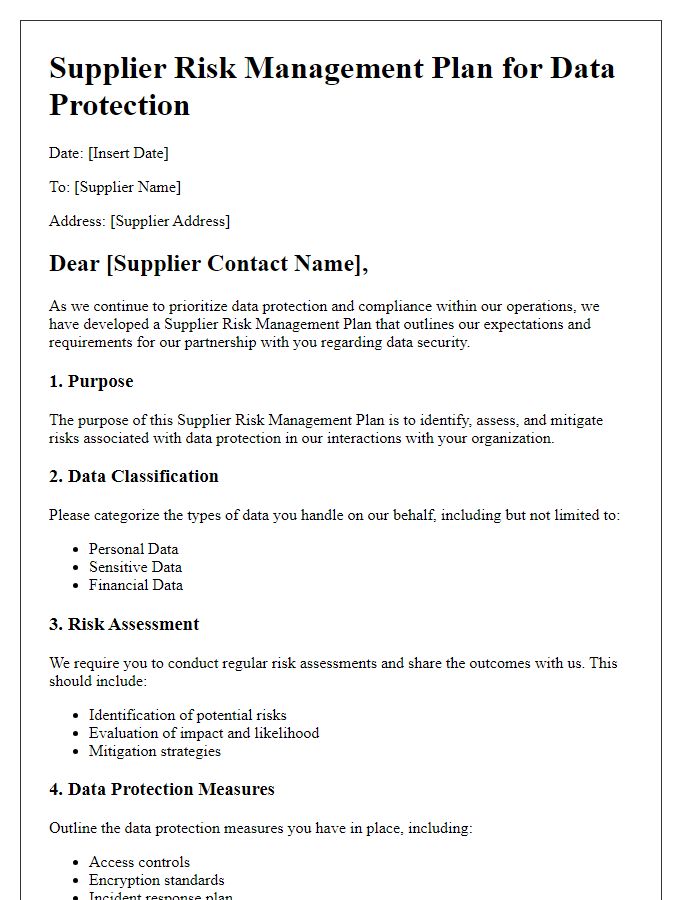
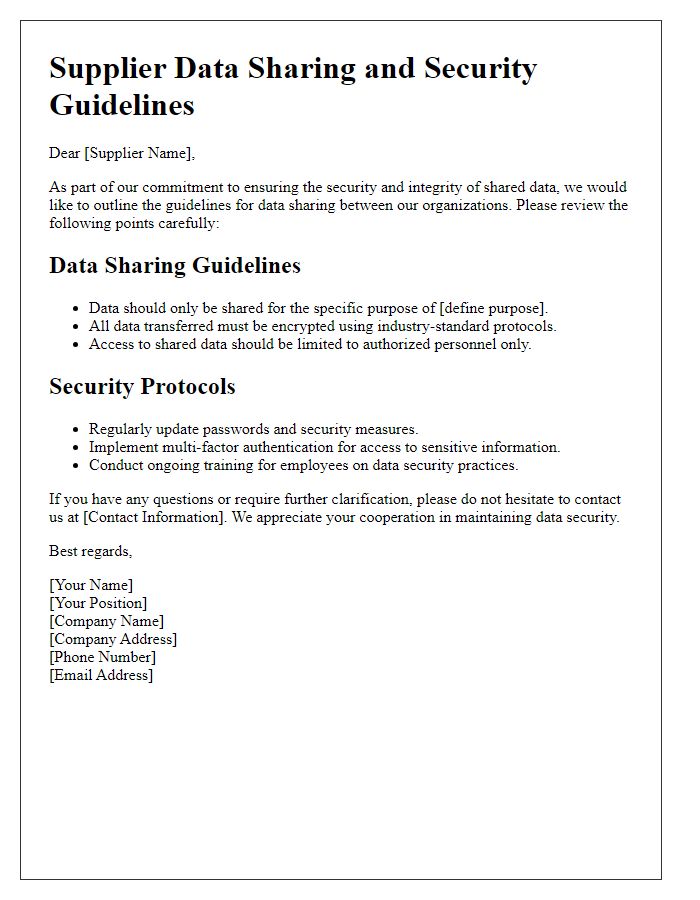
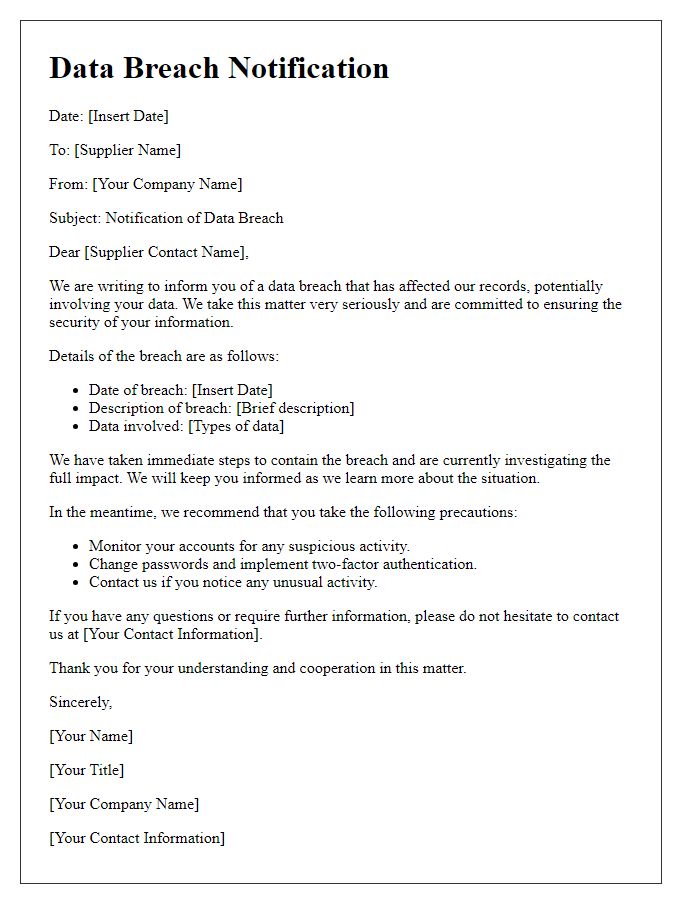

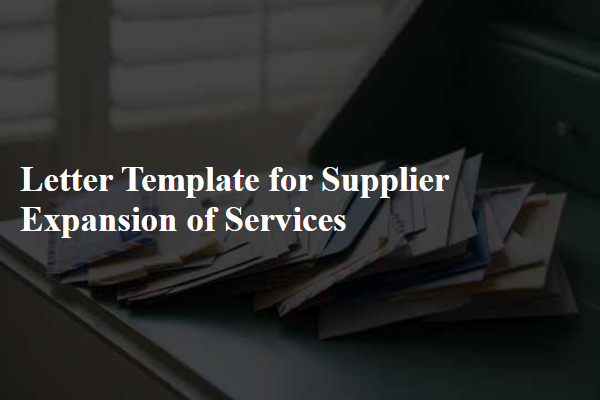
Comments